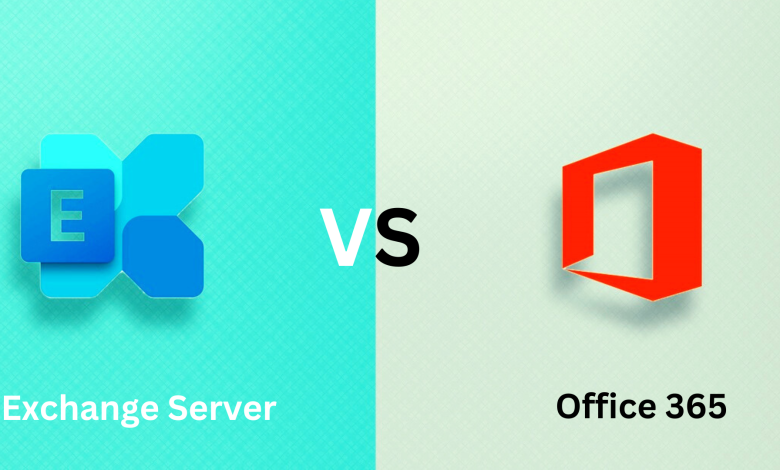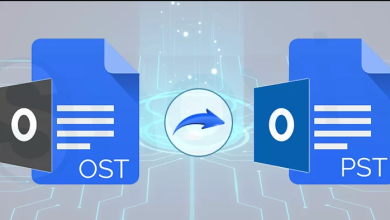Exchange vs Office 365 Pros and Cons: What Suits you?

Summary: This article will help you if you search for Exchange vs Office 365. In this blog, we discuss in detail that what is meaning of Exchange and Office 365, and their pros and cons. Additionally, we learned about which users need Office 365 and which users need Exchange Server. Furthermore, if any user needs to migrate their data from the Exchange Server to Office 365. Then in this case experts recommend a specialized tool which we discuss in this article.
Introduction to Exchange vs Office 365
Office 365
Microsoft offered Office 365 which is now known as Microsoft 365. Additionally, if we talk about Microsoft 365 it is a suite of cloud-based productivity tools and services. It contains a range of work designed for organizations; even a non-technical user can also use it quickly.
Exchange Server
Nowadays, an Exchange Server is known as a Microsoft Exchange Server. It is a messaging server developed by Microsoft and it is mainly used by organizations to manage communication, contacts, calendars, etc.
Now we take a look at the advantages and disadvantages of Exchange vs Office 365 one by one.
What are the Pros and Cons of Microsoft 365?
Pros of Microsoft 365:
- Office 365 provides some applications like Word, Excel, PowerPoint, and more which are used by organizations to make their work faster.
- Microsoft 365 allows users to access their work from anywhere or with any system with the help of an internet connection.
- In an organization, if any user needs to collaborate in real time on documents and projects. Therefore, it can be possible with the help of the tools provided by Microsoft like Microsoft Teams, SharePoint, and OneDrive.
- Users do not need to worry about their data loss or file corruption because Office 365 stores data in the cloud. Additionally, it also provides backup and recovery options.
Cons of Microsoft 365:
- Microsoft 365 is not free it is subscription-based, which means continuous cost for firms.
- As we discussed Microsoft 365 stores data in the cloud which raises concerns about data privacy and control.
- Microsoft 365 depends on an internet connection. You can access your services only when you connected to the internet
- It has some advanced features and requires training for users to use the services very efficiently.
What are the Pros and Cons of an Exchange Server?
Pros of an Exchange Server:
- The organizations have full control over their data and security policies with the help of an Exchange Server.
- Users can customize on-premises Exchange Server to fulfill their specific requirements like security and compliance.
- It supports high convenience configurations so it can help in reducing the risk of data loss.
- It can provide authority for the organization to implement its own backup and recovery solutions.
Cons of an Exchange Server:
- To run an Exchange Server requires ongoing maintenance like server hardware and software updates.
- Organizations are responsible for managing their own security measures and it can be complex.
- Organizations have to manage backup and recovery which can be both time-consuming and complex.
- If an organization has to maintain its Exchange Server environment it requires specialized IT skills, and organizations may need to provide the training for users.
In this direct comparison of Exchange vs Office 365 we saw that the latter comes out on top.
Also read: How to move emails from one account to another in Outlook 365?
Use Cases Comparison Exchange Server and Office 365?
The number of users that require Office 365 will depend on the size and structure of an organization. Office 365 is designed not only for small businesses but also for large businesses.
So now here we will talk about those places where Office 365 can be used:
- Small Businesses and Startups
- Government and Public Sector
- Individual Users and Home Users
- Startups and Entrepreneurial Ventures
- Professional Service Firms
- Creative Professionals
- Enterprise Organizations
The Exchange Server is an email and collaboration solution and organizations need to use it for their specific needs. So now here we will talk about those places where Exchange Server can be used:
- Business Professionals and Corporations
- Financial Institutions and Banks
- Healthcare Providers and Hospitals
- Legal Firms and Law Enforcement Agencies
- Educational Institutions and Schools
- Government and Public Sector Organizations
- Research and Scientific Institutions
How can Migrate the Exchange Server to Office 365?
If an organization needs to migrate from an on-premises Exchange Server to Office 365 it can be both a difficult and time-consuming task. Moreover, it requires careful planning to ensure a smooth transition. But if you need to make the migration process easier then experts recommend a specialized tool that can help you. Additionally, SysTools’s Most Secure Exchange to Office 365 Migration Tool is designed to simplify the migration of data from Microsoft Exchange Server to Microsoft Office 365.
Its aim is to simplify the transfer procedure by allowing organizations to transition from their existing on-premises Exchange environment to the cloud-based Office 365 platform. Furthermore, the above-mentioned tool helps you facilitate the migration of your mailbox data, including emails, contacts, and calendars from Exchange Server to Office 365. It supports some migration methods like cutover, staged, or hybrid migration.
Here are some steps for the above-mentioned tool:
Step 1. Download & Run Exchange to Office 365 Migration Tool
Step 2. Select Mailbox Items & Apply Date Filter
Step 3. Enter Admin Details for Exchange & O365 Platforms
Step 4. Validate Permissions and Fetch Users
Step 5. Hit the Start Migration Button
Conclusion
In this blog, we learned about Exchange vs Office 365, and its pros and cons. Additionally, we researched how many users want Office 365 and how many want Exchange Server. Moreover, we learned how can we make the migration process easier with the help of an expert’s recommended professional tool.



